Vitamin B2: Riboflavin Deficiency and Severe Fatigue
Vitamin B2 – aka riboflavin – is crucial for maintaining adequate energy levels. Learn how riboflavin helps in fight against fatigue and how to identify whether or not you suffer from vitamin B2 deficiency.
Most people give little thought to the vitamins and minerals in their bodies. Oh sure, they might take a multivitamin every now and then – usually because some friend recommended it – but very few ever take the time to learn about why each of those nutrients is so vitally important to the maintenance of sound health. When the level of any of those critical vitamins falls below what the body needs, overall health can be severely impacted. Take, for example, vitamin B2. When the proper levels of this crucial nutrient are not maintained, patients can experience severe fatigue and many other symptoms.
What is Vitamin B2 and How Does it Benefit You?
Vitamin B2, which is more commonly referred to as riboflavin, is considered an essential B vitamin. It is water soluble, and available in some quantity in most plants and animals. Riboflavin’s essential characteristic is its role in supporting the adrenals, balancing out the central nervous system, and assisting with metabolism.
As part of this metabolic role, B2 aids in cellular growth and the creation of energy. It also serves as a facilitator for the conversion of other vitamins into useful form. Because it aids in energy creation, and helps to battle many common diseases like anemia and depression, it also stands as a barrier against fatigue.
How Do You Know if You Suffer from Vitamin B2 Deficiency?
Given the important role played by riboflavin, you would expect a deficiency to present some clear symptoms – and, indeed, there are obvious signs present when a patient lacks this essential nutrient. These signs include fatigue, general weakness, swollen and sore throat and tongue, anemia, skin flaking and cracking, and vision issues. The most vulnerable groups are those with chronic illnesses, people with substance abuse problems, pregnant women, and the elderly.
Patients who suffer from riboflavin deficiency tend to have some specific symptoms that usually merit a consultation with a doctor. In addition to those listed above, most experience a rash that presents as thick scales on areas of the skin that receive direct sunlight. Riboflavin deficiency also alters your iron balance, and can contribute to iron deficiency anemia – so symptoms associated with anemia are often signs that you might also be suffering from a lack of B2.
How to Diagnose Vitamin B2 Deficiency
Any deficiency in the levels of this vitamin can be detected through normal blood tests. Since riboflavin deficiency is relatively rare, however, most doctors only test the levels when a patient presents the obvious symptoms associated with low levels of this vitamin.
Food Sources for Vitamin B2
Most relatively healthy people never need to supplement their riboflavin, provided they eat a diet consisting of a variety of different foods. There is B2 in many foods, including dairy products, meats, asparagus and other dark green vegetables, eggs, poultry, and fish.
How to Supplement Vitamin B2
People who need to supplement this vitamin can usually manage their needs with a multivitamin, though those in the high risk category should ask their physicians how much they need. Adolescents need about 1 mg a day, while adults need between 1.1 and 1.3 mg. Children typically need significantly less, but you should consult with their physicians to get the right dosage.
Potential Side Effects and Interactions
Excess riboflavin is typically handled by the body very well. In fact, it generally gets disposed of through the urine. People who take incredibly high doses, however, can experience kidney stones over time. As a general rule, this vitamin is one that the body has little trouble managing. One sign that you may have too much riboflavin, however, is when your urine becomes bright yellow in color. This often occurs during periods when B2 supplements are being administered, but is not a cause for alarm since there are no negative consequences associated with the discoloring.
Just as with any vitamin or mineral, it is important to maintain the right levels of riboflavin to support proper bodily function. When riboflavin levels are low, the body’s ability to make and use the energy it needs can be severely disrupted – leaving the patient susceptible to anemia and fatigue. Fortunately, by being aware of these potential risks and taking proactive action against them, you can avoid this deficiency and the complications it can cause.
You might also be interested in:
- Vitamin B Deficiency, Fatigue, Ridged Nails, and Rash. http://www.livestrong.com/article/499928-vitamin-b-deficiency-fatigue-ridged-nails-rash/
- RIBOFLAVIN. http://www.webmd.com/vitamins-supplements/ingredientmono-957-riboflavin.aspx?activeIngredientId=957&activeIngredientName=riboflavin&source=1&tabno=6
- Vitamin B2. http://www.nutri-facts.org/eng/vitamins/vitamin-b2-riboflavin/at-a-glance/
- Riboflavin. http://www.medicinenet.com/vitamins_and_calcium_supplements/page12.htm

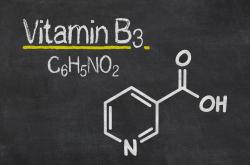
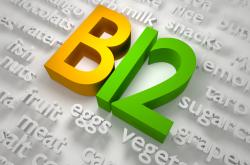
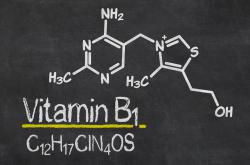
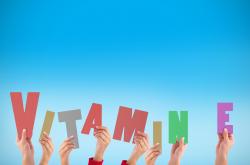

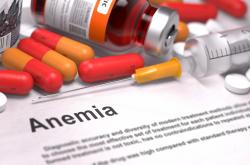
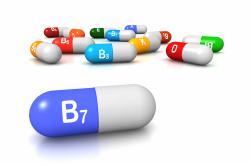
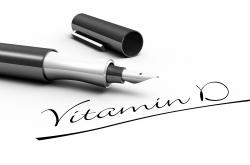
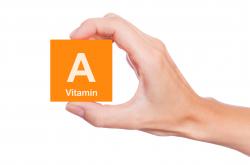








Leave a comment